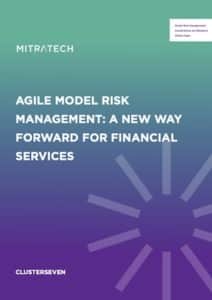At the end of February, UK Finance hosted a Model Risk Management (MRM) technical briefing at their London Headquarters for 120 UK Finance members. As well as presentations from UK Finance and Mitratech, sessions also featured the Prudential Regulatory Authority (PRA), Chartis, KPMG, as well as a panel discussion with industry practitioners.
After the event, Henry Umney, Director Commercial GRC for Mitratech, took a few moments to discuss the briefing with Simon Hills, Policy Director at UK Finance.
A key theme that emerged at the event, for them both? The way that MRM capabilities, familiar to teams managing the trading book, were now being applied to the very different banking book at financial institutions. Henry and Simon both recognised the need for an enormous amount of education support for banking book teams, especially as they have never had to manage models in the same ways as their peers managing the trading book.
Simon saw that there was a need for management to grasp the fundamentals of MRM, including the definition and use of models, and their roles and responsibilities involved in effectively managing them. He also recognised how these dynamics were permeating across the largest banks, as well as beginning to impact their smaller peers. Simon also speculated about whether this requirement may also extend to investment firms in due course.
A need for proportionality in MRM implementation
Both Henry and Simon were very intrigued by the point raised by the PRA about the need for proportionality in implementing MRM. Many people in the room were from smaller institutions, keen to understand how regulations like SS3/18 might be applied to them, and how that might differ from the way they were applied to tier 1 institutions.
It was clear from the PRA that smaller institutions would be held to the same standards as their larger brethren, but that would be scope for adopting different approaches given their smaller size of operations and reduced complexity. One point that was very refreshing for Simon and Henry: That PRA wanted people to apply common sense to their MRM, and not overly complicate their management of it. Everyone recognised the need for enhanced MRM, while also seeing a need to implement it efficiently, with constrained resources.
To learn more about some of the issues explored at the event, download the Chartis MRM research that was presented in its session.
Or to learn more about how Mitratech can help you enhance your MRM, download an in-depth MRM whitepaper.
[bctt tweet=”The PRA has stated they want people to apply common sense to their MRM, and not overly complicate their management of it.” via=”yes”]



